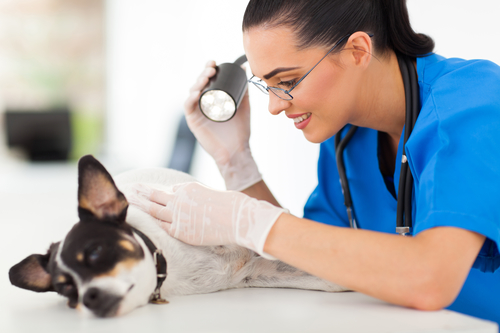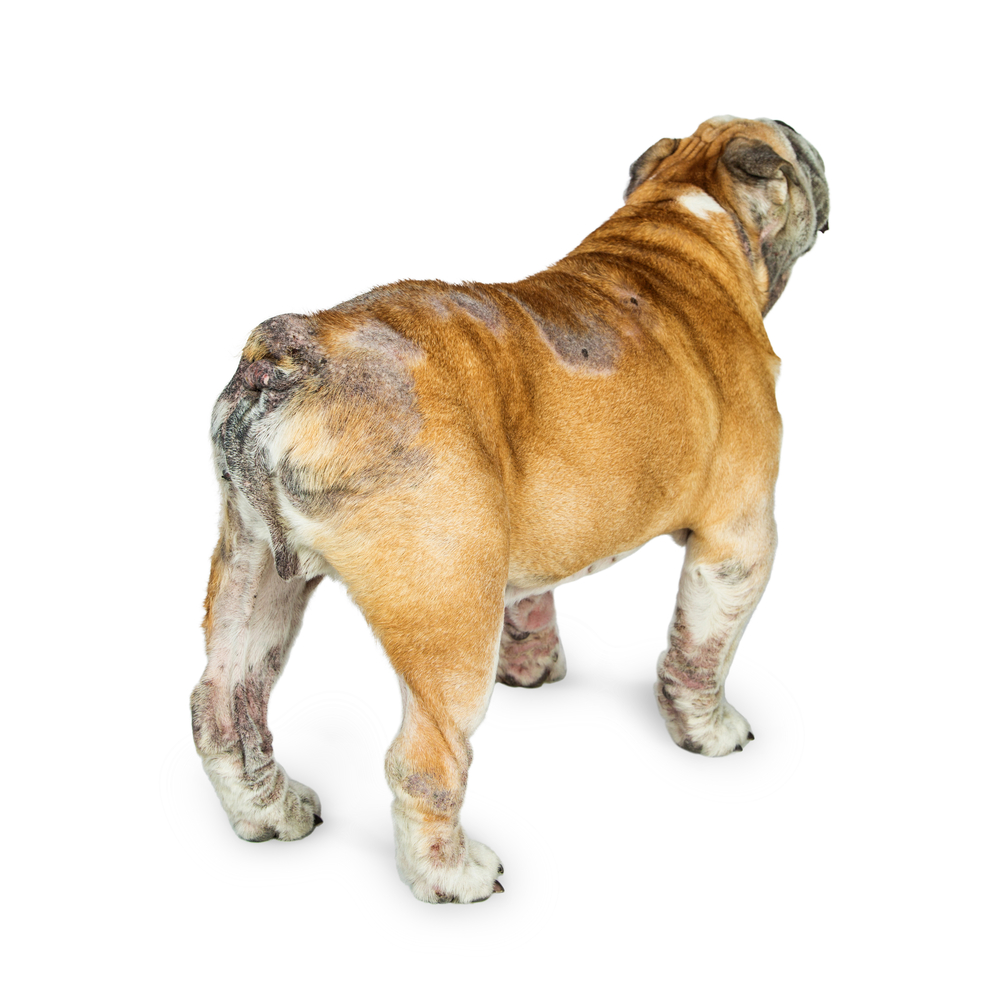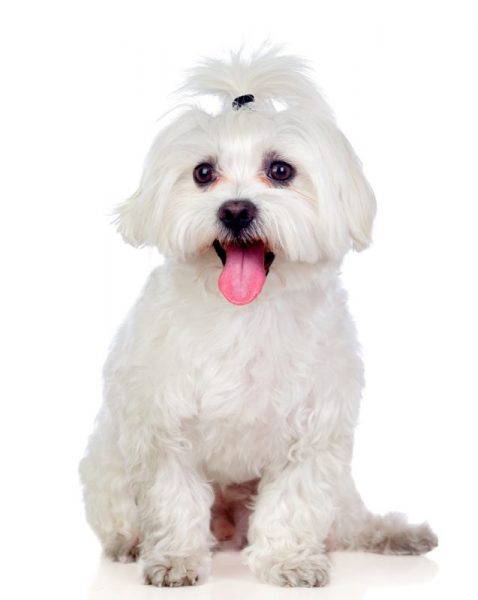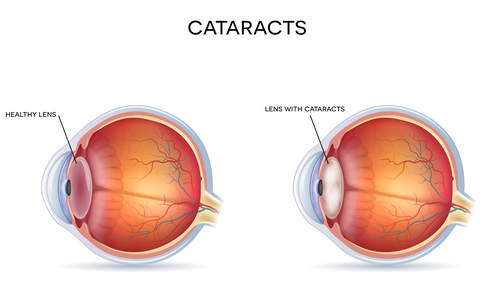Cancer in dogs, relatively common in pets over 10 years old, is best treated early, but it can be hard for you to detect.
There are more than 100 types of canine cancer, and cancer can affect almost any tissue in your dog’s body. As a result, many other conditions and diseases have the same symptoms as various dog cancers.
What is Canine Cancer?
You may be wondering, what, exactly, is the definition of cancer. Cancer is a malignant growth (tumor) or neoplasm (new growth that is abnormal). If tests are done for cancer and the results are negative, a growth is said to be benign or harmless.
However, not all cancers are tumors. For example, leukemia is an example of a cancer of the blood. In this case, there is no growth or tumor.
Cancer cells invade and destroy normal healthy tissue, and they can spread to other areas of the body. When cancer spreads throughout the body, it is called metastasizing.
Cancer cells multiply much more rapidly than other body cells, which is why we often find a tumor or lump.
If you find a lump on your Bichon Frise, you should pay attention. Even a benign (not cancerous) tumor can cause damage, by taking up space and pushing on organs and body tissues.
There are over 100 types of cancer seen in dogs. The most common cancers in dogs are skin cancers and cancerous tumors of the mammary glands. About 40% of all dogs with cancer have skin cancer.
Who Gets Dog Cancer?
Some dogs are more likely to have cancer than others. Here are some of the factors to consider:
- Age - Most dogs with dog cancer are over 10 years old. The chances of your dog’s having cancer increase as he gets older.
- Purebred dogs - have a higher incidence of cancer than mixed breed dogs.
- Immune systems – dogs with compromised immune systems, because of another disease or condition like diabetes.
- Female dogs – If you don’t have your dog spayed, she will have a risk 200 times as great for mammary cancer, than a female who has been spayed before her first heat. If you find a tumor on the mammary glands, your dog has a 50% chance of its being cancer.
- Male dogs – If you have your male neutered, his risk for testicular cancer becomes 0%.
- Fair complexion – Dogs, like Bichon Frises, with light colored hair and fair complexions, are more likely to get skin cancer. Long periods of exposure to the sun can increase the risk. Keep your dog indoors from 12:00 to 4:00 during the summer months. Or you can make sure they have a shaded area outside. Taking walks and short play times outside do not pose a risk.
- Homes with smokers – Dogs, like children, who are exposed to secondhand smoke, are more likely to develop cancer.
- Heredity – There is some evidence that supports a hereditary factor. For example, Golden Retrievers, Boxers and Bernese Mountain Dogs are the dog breeds most likely to get cancer.
Dog Cancer Symptoms
Here are the most common symptoms of cancer in dogs:
- Lump or tumor on the skin – especially if it gets larger
- Swollen lymph nodes
- Sore that does not heal or that continues to bleed. This is usually not painful.
- Small hard lump, under the skin, at or near a teat. It may ulcerate and bleed.
- Loss of weight and appetite
- Pain - Your dog acts as if she is in pain when you touch her or she moves a certain part of her body. Cancer can be very painful.
- Vomiting and/or diarrhea – that persists and does not go away in a day or two
- Constipation or diarrhea with blood in the stool
- Blood - in the urine, from the mouth, nose or genital area
- New problems – difficulty breathing, swallowing, chewing, peeing or defecating (having a bowel movement)
- Bad breath – without a known cause, like periodontal disease or decayed teeth
- Dry cough
- Lack of energy and pep
- Loss of weight – you don’t know why your dog is losing weight
- Not eating, or not eating as much as usual
- Not wanting to play or go for walks – older dogs may not be as interested in playing, as they were as puppies. This may not be a symptom for old dogs.
- Lameness or stiffness – without a reason, like arthritis.
If your dog has one of these symptoms, it does not necessarily mean that she has cancer. But you should pay attention, and if you think there is a problem, make an appointment with your vet.
Dog Cancer Treatment
Just as with people, the earlier you discover cancer in dogs, the better. Early diagnosis makes the cancer easier to treat.
But, because we are talking about dogs who can’t tell us that they don’t feel well, we sometimes don’t recognize that there is a problem. Often when we discover canine cancer, the cancer is more advanced
Traditional veterinary medicine uses three common treatments for cancer in dogs: surgery, radiation and chemotherapy. Your vet may choose to use one or all three of these treatments.
Your veterinarian will assess your dog’s general medical health, identify the particular kind of cancer that your dog has, and decide whether it is localized or it has spread.
He or she can then help you make a decision about what kind of treatment is best for your dog.
Surgery can be effective, if you notice the tumor in time. And there are medicines available for dogs with cancer.
If it is not possible to cure your dog’s cancer, your vet will prescribe medications to minimize pain and discomfort for your pet.
Resources for Owners of Dogs with Cancer
These books about canine cancer have high reviews and are recommended by other dog owners whose dogs have had cancer.
- The Dog Cancer Survival Guide by Demian Dressler, DVM and Susan Ettinger, DVM - Dr. Dressler is nternationally known as “the cancer vet” and Dr. Ettinger is a veterinary oncologist. If your dog has cancer, this book will give you hope. The Dog Cancer Survival Guide gives you options, based on scientific research, that are both traditional and non-traditional. A good resource to have in your library.
- The Dog Cancer Diet by Demian Dressler, DVM - This is an inexpensive Kindle edition book that you can download immediately. It gives you a diet plan to help your dog fight his cancer and to rebuild his immune system.
- Dog Cancer: The Holistic Answer by Dr. Steven Eisen - Another Kindle edition, this book gives you detailed information to helping your dog, using a holistic approach.
- Natural Vet’s Guide to Preventing and Treating Cancer in Dogs by Shawn Messonnier, DVM - Based on scientific studies and Dr. Messonnier’s practice, this book gives lots of information on preventing cancer in dogs in addition to treatment.
Holistic Treatment for Canine Cancer
Dr. Demian Dressler has been unusually successful in his treatment of canine cancer. He has written a book, “The Dog Cancer Survival Guide“, that shares many of his holistic cancer treatments that have worked so well.
If your dog has cancer, or you suspect that she may, you might want to consider reading his book. It’s the first one listed above.
In addition to cancer treatment options provided by your vet, there are some things that you can do to keep your dog comfortable and possibly, extend her life.
- Pain – You are the person who is most likely to know if your dog is in pain. When you notice that she is hurting, you can take steps to make her more comfortable. You might need to consider a dog pain reliever.
- Diet – Your dog’s need for certain nutrients may increase if he has cancer. Providing extra nutrition at this time can help your dog feel better or get well.
- Water – Dogs with cancer may become dehydrated, because they do not drink enough water. Encourage your dog to take drinks often.
- Supplements – If your dog’s vet feels that your dog is not getting enough nutrients in his food, the vet may prescribe supplements like ProtectaCell Cancer Support Formula to fill in the gap.
Dog Hospice and Saying Goodbye
While I would like to offer a magic solution that would make all dogs well, I can’t. Some dogs simply aren’t going to recover. Not all cancers can be cured and not all cancer treatments work.
Even if a cancer treatment is working, it may still be painful and uncomfortable for your dog. Sadly, you may reach a point when you have to decide whether living a little longer in pain is worth the agony that your pet is suffering.
You may find that treatments are not working, they are making your dog miserable, or that they are so expensive, that you simply cannot afford them.
At this point, your dog is in Hospice care. Your role is to provide pain and discomfort relief, while providing emotional and physical support for your dog. You provide a safe and stress-free place for your dog to end her days quietly.
This also gives you time to accept your loss and get used to the idea that your dog will soon be gone. It gives you an opportunity to spend time with your dog and to say goodbye.






Leave a Reply